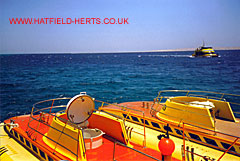 Travel – Before you go (Part 4)
Travel – Before you go (Part 4)
Planning your holidays – Things to get or take with you
Where do I find more information?
Internet
Internet sites and travel forums are a key source of information on just about every aspect of your holidays.
Foreign & Commonwealth Office
Their website has useful information sorted by country. Also details for the local British embassy.
http://www.fco.gov.uk/en/travelling-and-living-overseas/travel-advice-by-country/
Travel Guide companies
Lonely Planet and Rough Guides are established and respected names, and are very practical.
http://www.lonelyplanet.com
http://www.roughguides.com
Websites give you up-to-date news on scams and things to look out for – good and bad.
Quality newspapers – like The Guardian, Telegraph and The Times – have travel sections with destination A-Z guides on their websites.
For basic facts and figures about the countries of the world try the folks in Langley. Otherwise known as the Central Intelligence Agency.
https://www.cia.gov/library/publications/the-world-factbook/
Friends and acquaintances
Chances are you won't be going where no one has gone before. So ask around and there's bound to be someone who has been there before.
Travel guides
There are a variety of these. Some are aimed at the backpackers (like, Lonely Planet and Rough Guides), others for more luxurious travel. The guides have loads of facts and useful data. However, make sure you buy the most recent edition, as it’s a fast changing world and the guides are updated every few years (be wary of the ones that have been heavily discounted – usually means a newer version has been released).
Travel companies, agents and brochures
Bear in mind these are commercially minded. However, a good company wants you to come back again and they often have useful information in their brochures or on their website.
Embassies and Tourist Authorities
Again, likely to be sales orientated but official embassies and the relevant tourist board should be able to provide useful information. Although some can be rather slow, by UK standards, to respond to information requests.
Airlines
Also a potential source of information but may be limited in scope.
Tip: tv presenter Kate Humble’s website stuffyourrucksack.com lists items (even inexpensive things like pens and exercise books) that you can take for local charities if you feel like doing some good while you’re enjoying yourself.
Emergencies
Be prepared – Always hope for the best but be ready for the worst.
Make sure the Emergency Contact section of your passport is filled in – and the details are up to date (people may have got married and changed names / addresses / telephone numbers). Also check that your named contact is not going off on holiday themselves.
Make sure your friends / family know where you are going and when you are expected back.
Leave details of your insurance policy with them.
Make a note of your emergency contact numbers for your insurer and bank / credit card issuer, and your card number and start / expiry date (keep separate from your cards – otherwise you could end up losing both and defeating the object of the exercise).
It's a good idea to notify the issuers of the cards you're taking about your travel plans in advance (for some card issuers this is a requirement).
Make a note of the contact numbers and details of the local British embassy or consulate (details available from the Foreign & Commonwealth Office web site).
If you're on a working holiday or likely to be there for any length of time it is a good idea to register with the local British High Commission. That way they'll know you're in the country and will check on you or make preparations to evacuate you
Packing
Pack smaller items – like underwear and socks in smaller bags to keep them together inside your main bag.
Tip: take a few spare bags or even bin liners to keep dirty linen or wet items separate from others in your bag. They may also come in handy for packing any souvenirs or presents.
Pack heavier items below clothes that may get crushed or fragile items.
Keep items you're likely to need frequently closer to the top (so you don't have to tip out the whole contents of your bag to reach them).
Click here for Travel – Getting there